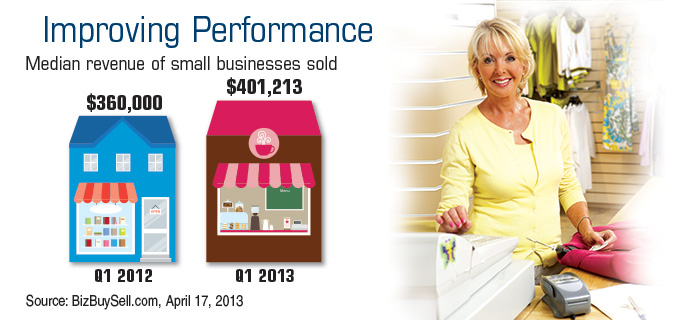In the first quarter of 2013, the number of closed business sales increased 56% over the same period in 2012, and the median sales price rose 20% to $180,000.1 According to several surveys, retirement was the primary reason for the upswing in business sales.2
Small-business owners typically have up to 80% of their net worth tied up in their enterprises; thus, business valuation can be an important part of retirement planning.3 Unlike some other types of investments, the value of a small business is not something you can look up online or easily identify.
Valuation Methods
The “fair market value” is essentially a hypothetical valuation between a willing buyer and a willing seller. It is the price that would be acceptable to both parties who have reasonable knowledge of the relevant facts, assuming neither is under any hardship or compulsion to complete the transaction.

A professional accountant or business appraiser may employ one or more of the following techniques, depending on the nature of the business and other relevant factors.
Asset-based approach (Also known as cost approach)
Considers the fair market value of fixed assets and equipment and the wholesale value of current inventory, minus any liabilities.
Market approach
Compares the business to similar enterprises that have sold recently, adjusting for differences in size, risk, market position, and other characteristics.
Income approach
Calculates a value based on the company’s ability to earn income. Basically, the average earnings over a certain period of time are divided by a capitalization rate that typically applies to the specific industry.
The value is often expressed as a multiple of net income or revenue. Because many variables can influence how much a business may be worth, the resulting estimates are often fairly subjective. A seller and a potential buyer may draw very different conclusions when assessing a firm’s value; both may become the starting points for negotiations.
Maximizing Proceeds
To help sell your business for a better price, spend some time cleaning up the books and the facilities. It could take many months to find a qualified buyer and finalize the transaction, so it may be wise to begin researching the market and planning for a potential sale long before you intend to retire from your business.
1) BizBuySell.com, April 17, 2013
2) Bloomberg Businessweek, May 15, 2013
3) financial-planning.com, February 21, 2013

